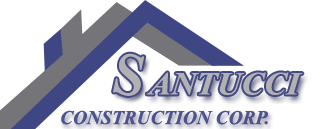Your septic system is essentially comprised of a large holding tank that holds biological waste until it is broken down by natural bacteria. The gases and water produced by decomposition are released through vents and into the drain field, while the solids sink to the bottom and are pumped out periodically. Biological processes take time, and septic systems are commonly made to deal with more than biological waste. For example, most homes produce kitchen waste, an excess of water from baths and showers, soaps, detergents. and other non-biodegradable products. As a result, the most common septic problems arise from having to process products that they aren’t designed to deal with. Here are the most common issues plaguing septic systems in Tarrytown, NY.
Excess water
Failing to use water efficiently can force your septic system to hold more water than it was designed to store. This prevents solid wastes from breaking down. The water level in the tank rises to the point where solid waste passes out of the tank and into distribution tubes. These tubes are designed to handle liquids and solid waste can easily block them. Try to optimize the amount of water entering your septic system on a daily basis, by using low flow or dual flush toilets, for example.
Related: Repair Or Replacement For Your Pleasantville Septic System?
Excess detergent
The phosphates found in detergents promote the growth of algae, which can block the important perforations in your distribution pipes. Your washing machine may not be able to adequately dilute the residues from excess detergent, which can lead to problems for your pipes and tank. Gel soaps, unlike powdered versions, do not contain phosphates and are safer to use.
Chemicals
Chemicals like pesticides, motor oil, and paint thinners are toxic and should not enter the septic system. They will be distributed into the surrounding soil, along with the rest of your wastewater, and can pollute it to the point where it becomes unfit to sustain plant life. These harsh chemicals can also destroy the essential bacteria in the septic tank responsible for breaking down organic waste. Be weary of commercial products that claim to clear septic systems, as they may contain toxic products, such as lye, that pollute the environment.
Related: How We Ensure Safety During Septic System Repair In Armonk
Non-biodegradable products
Non-biodegradable products will never degrade naturally and simply fill up space in the septic tank. This raises the water level and forces floating solids into the distributing system. Many ‘flushable’ products also don’t break down properly, so avoid flushing anything that could be thrown away. Kitchen waste, like oil and grease, should not go down your kitchen drain, and the garburator shouldn’t be connected to the system. Kitchen wastes break down differently to human waste and can also impair the functioning of your septic system.
Related: How Regular Septic System Repair And Maintenance Saves You Money In Peekskill
Tree root damage
The roots of trees and shrubs can grow through the walls of a septic system and cause various issues. Ground water may enter the tank, and the foul contents within the tank may leak out to threaten your health.
Related: Why Septic System Repair And Replacement Is So Important In Westchester County
To ensure none of these issues present a problem for your septic system, contact Santucci Construction Corp. for an inspection or repairs to your septic system.


